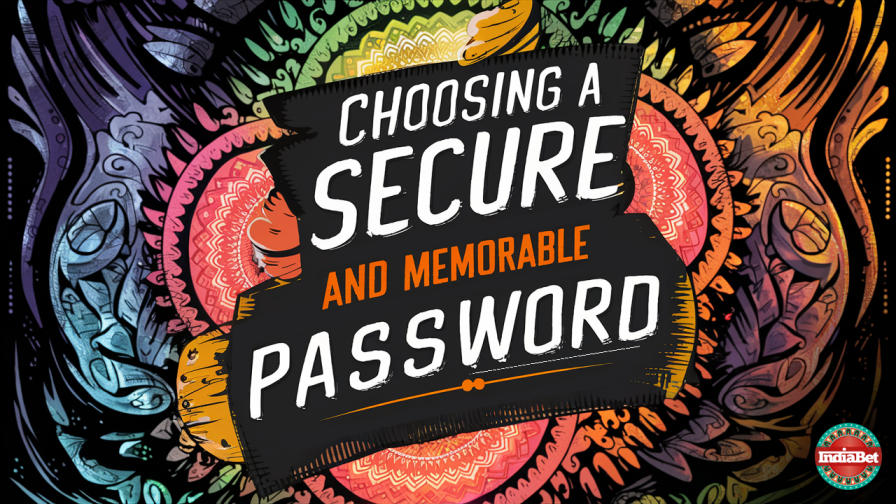
The importance of choosing a secure password cannot be overstated. With the advent of advanced technologies like Artificial Intelligence (AI) and Quantum Computing, the need for robust password security has become even more critical. This article will guide you on how to choose a password that is not only secure but also easy to remember.
The Best Password
The passphrase method approach, also known as the "Correct Horse Battery Staple" approach, is our recommended technique for creating secure passwords. This method involves choosing four or more random, unrelated words and stringing them together to create a passphrase. For example, "CorrectHorseBatteryStaple" or "MangoStreetPencilElephant".
The beauty of this method lies in its simplicity and effectiveness. These passphrases are easy to remember (you can visualise a correct horse next to a battery staple) but hard for hackers to crack due to their length and randomness.
AI and Quantum Threats
With the rise of AI and Quantum Computing, even complex passwords might not be safe. AI algorithms can predict and crack passwords by learning from large datasets of breached passwords. Quantum computers, on the other hand, can process information at an unprecedented speed, potentially breaking even the most secure encryption methods.
Great Passwords
To combat these future threats, your password choice should be even more robust. Here are a few recommendations:
- Longer is Stronger: Increase the length of your passphrase. The longer the passphrase, the more secure it is. For instance, instead of "MangoStreetPencilElephant", you could use "MangoStreetPencilElephantDancingInsideBlueOranges". India Bet recommends using the BIP-0039 word list to choose your words from.
- Special Characters and Numbers: Incorporate numbers, symbols, and both uppercase and lowercase letters in your passphrase. For example, "Mango3StreetPencil$ElephantDancingInside4BlueOranges".
- Avoid Predictable Patterns: AI algorithms are good at detecting patterns. Avoid using common phrases, repeated characters, or sequential keyboard paths.
Though it's technically possible to remember a lot of passwords, most people do not or cannot do this. The best course of action would be to choose an ultra secure password (six to eight word passphrase) and use this password solely to secure a reliable and trusted password manager.
Other Methods
These methods are not recommended as even though they are better than using a simple password they could have limited security. We have included them as they are fairly common ways of remembering passwords.
- The Acronym Method: Another method to create a memorable yet secure password is the acronym method. Think of a sentence or a phrase that is significant to you, and use the first letter of each word to create your password. For example, the phrase "My first car was a Maruti Suzuki in 2005" could become "MfcwaMSi2005".
- The Leet Speak Method: Leet speak is a system of replacing standard letters with numerals or special characters that resemble the letters. For example, "E" can be replaced with "3", "A" with "4", "S" with "$", and so on. So, a password like "ElephantCoolBro" could become "3l3ph4ntc00lbr0".
Don’t use Simple Passwords
While it might be tempting to use easily memorable information like your child's name, a family member's name, or common words with a number before or after as your password, these choices are significantly less secure than the methods outlined above. Hackers often use a strategy called "social engineering," where they gather personal information about you that's publicly available or easy to guess. This information can include names of family members, pets, important dates, or favourite hobbies. If your password is based on this kind of information, it's much easier for a hacker to guess.
Password Strength
When it comes to password security, a critical concept to understand is "bits of entropy." In simple terms, entropy is a measure of unpredictability or randomness. The higher the entropy, the harder it is for a computer to guess your password.
Traditional Passwords vs Passphrases
Consider a traditional password that's 8-12 characters long, including uppercase and lowercase letters, numbers, and special characters. Such a password might have around 50-60 bits of entropy. While this might seem high, a modern computer can make billions of guesses per second, meaning it could potentially crack this password in a matter of days or even hours.
On the other hand, a four-word passphrase, like the "Correct Horse Battery Staple" approach, can have over 100 bits of entropy, depending on the length and randomness of the words. This level of entropy would take a computer millions of years to crack with brute force, making it significantly more secure.
The Impact of Adding More Words
If you extend your passphrase to six words, the bits of entropy increase exponentially, making your password even more secure. A six-word passphrase could have around 150 bits of entropy, which would take a computer billions of years to crack with current technology.
Remember, the goal is to create a password that is easy for you to remember but hard for a computer to guess. By following these guidelines, you can ensure that your online accounts remain secure, even in the face of advancing technologies like AI and Quantum Computing.
Secure passwords: Create strong, memorable passphrases using random words. Avoid personal information and common patterns. More words, more security!






 90%84%
90%84%

